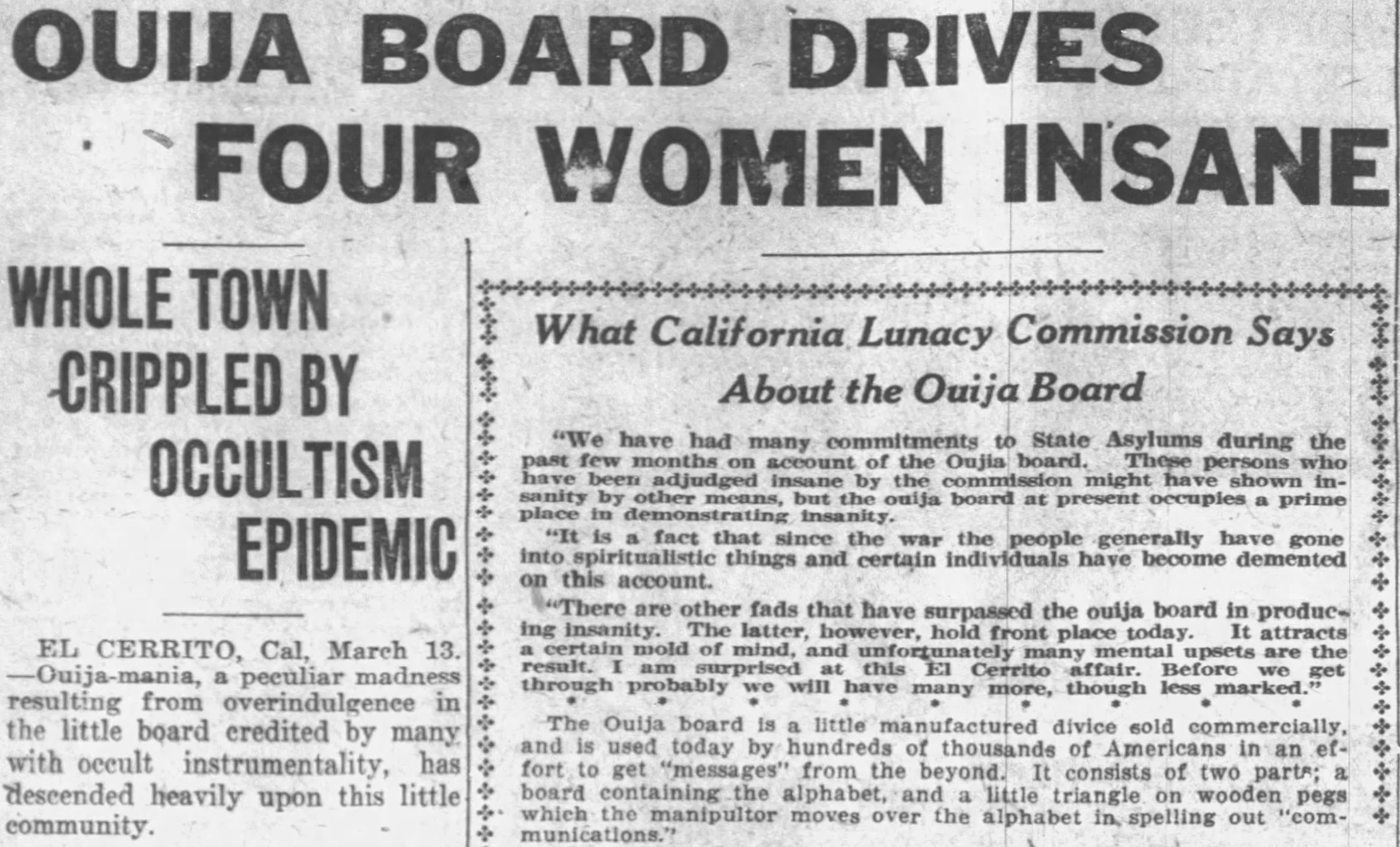When El Cerrito Went ‘Insane’:
The Ouija-Mania Incident of 1920
Article from the March 14, 1920 edition of the Buffalo Times. Online image
On the night of March 3, 1920, police broke down the door of a San Pablo Avenue house and arrested seven people on charges of insanity and being a threat to themselves and others.
The home’s inhabitants had been conducting all-night séances for many weeks, using a Ouija board to communicate with the dead. Led by a woman who lost her daughter in a hit-and-run collision, the group initially sought to find out the identity of the girl's killer. But their meetings soon turned more ominous.
The group feared they had unleashed evil spirits, which were causing their children to go into trances. They felt the spirits could only be stopped by performing a series of increasingly bizarre rituals.
The police raid and insanity charges immediately became a national news story. Among the many sensationalized accounts was the claim that the entire city of El Cerrito suffered from "mass hysteria" and that all of its 2,000 residents needed psychiatric evaluation.
Article from the Abilene Weekly Chronicle and the Dickinson County News in Abilene, Kansas. Newspapers.com image.
An array of lawmakers, religious leaders, and medical experts also weighed in, calling for a ban on the popular Ouija board game, which they felt threatened the country's morality and public health.
Historian Chris Sterba described these events and the sensation they caused in special talk at the historical society’s annual meeting on Jan. 28, 2003. He discussed how El Cerrito's "Ouija-mania" incident reflected important changes in American life after World War I and the deadly influenza epidemic of 1918. Watch his presentation.
Chris Sterba is a professor of American Studies at San Francisco State University, and a longtime El Cerrito resident and member of the society. His research focuses on twentieth-century American social history and popular culture and his writing has appeared in many publications, including the Journal of American History, the Pacific Historical Review and California History.


